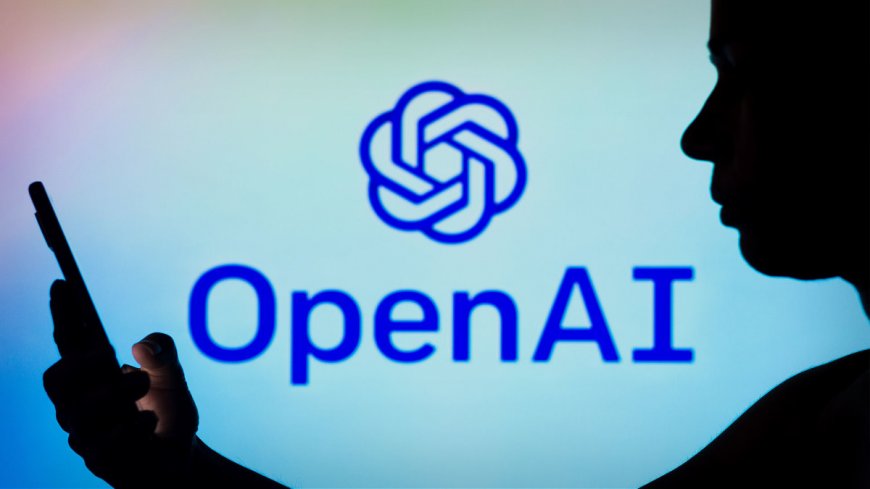OpenAI's latest new tool will massively change how the movie industry works
Some believe this new technology will threaten their careers.

In the last year, OpenAI has led the charge of the AI boom, introducing large language models and transforming the way we search for information, write everything from emails to papers, and even the way we do business.
Today, OpenAI announced a new offering: Sora, which is what it calls its text-to-video model. Much like the way Midjourney uses AI to create images, Sora does the same—but with video.
Related: The ethics of artificial intelligence: A path toward responsible AI
OpenAI shared several examples on X along with the announcement, which include a couple walking through a snowy landscape in Tokyo, wooly mammoths moving through a snowy field, and even a movie trailer featuring a man exploring a barren planet in space — in 35mm, no less.
Introducing Sora, our text-to-video model.
Sora can create videos of up to 60 seconds featuring highly detailed scenes, complex camera motion, and multiple characters with vibrant emotions. https://t.co/7j2JN27M3W
Prompt: “Beautiful, snowy… pic.twitter.com/ruTEWn87vf— OpenAI (@OpenAI) February 15, 2024
Prompt: “Several giant wooly mammoths approach treading through a snowy meadow, their long wooly fur lightly blows in the wind as they walk, snow covered trees and dramatic snow capped mountains in the distance, mid afternoon light with wispy clouds and a sun high in the distance… pic.twitter.com/Um5CWI18nS— OpenAI (@OpenAI) February 15, 2024
Prompt: “A movie trailer featuring the adventures of the 30 year old space man wearing a red wool knitted motorcycle helmet, blue sky, salt desert, cinematic style, shot on 35mm film, vivid colors.” pic.twitter.com/0JzpwPUGPB— OpenAI (@OpenAI) February 15, 2024
"Sora is able to generate complex scenes with multiple characters, specific types of motion, and accurate details of the subject and background. The model understands not only what the user has asked for in the prompt, but also how those things exist in the physical world," OpenAI's official Sora page on its website reads.
Sora is not available for general public use yet, but OpenAI says as of today it is available to "red teamers to assess critical areas for harms or risks ... we are also granting access to a number of visual artists, designers, and filmmakers to gain feedback on how to advance the model to be most helpful for creative professionals."
However, Sora isn't ready to replace all the folks that make movies trailers. OpenAI says that the current model has weaknesses, such as potentially struggling with accurately simulating the physics of a complex scene, or grasping cause and effect. Spatial details are also not there yet, as the model can also mix up left and right and may struggle with "precise descriptions of events that take place over time, like following a specific camera trajectory."
Commenters on X were quick to batter the post with questions, including who the "actor" is that appears in the movie trailer (quick answer: "he" is not an actor, but entirely made by AI).
Who is the spaceman in this video - where did the likeness come from ? Did OpenAi seek permission to monetise the works?— Netopia.eu (@NetopiaEU) February 15, 2024
Sam Altman, Open AI's CEO, also took to X to ask users for prompts so he could share more examples of what the product can do.
we'd like to show you what sora can do, please reply with captions for videos you'd like to see and we'll start making some!— Sam Altman (@sama) February 15, 2024
Comments ranged from awe to fear, with many commenters quick to note that Sora would leave them jobless in the future.
Others mentioned that the tool was going to open a path to troubling possibilities regarding both violence and pornographic content. For this, OpenAI already is working on safety measures for Sora, based on existing methods for its products that use DALL·E.
"For example, once in an OpenAI product, our text classifier will check and reject text input prompts that are in violation of our usage policies, like those that request extreme violence, sexual content, hateful imagery, celebrity likeness, or the IP of others. We’ve also developed robust image classifiers that are used to review the frames of every video generated to help ensure that it adheres to our usage policies, before it’s shown to the user," the Sora site reads.
What's Your Reaction?


























































